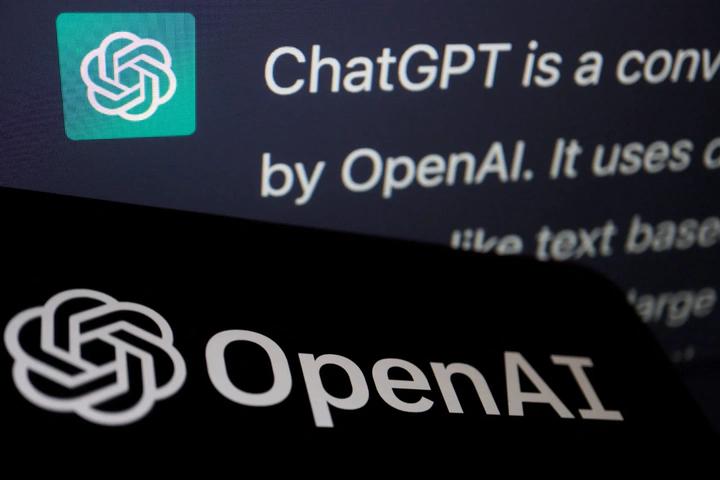
On November 29, Marc Toberoff, a lawyer representing Musk and his AI startup xAI, filed a preliminary injunction in federal court, seeking to bar OpenAI from transitioning into a fully for-profit business and to block OpenAI from asking investors to avoid funding its competitors. Musk's operation has undoubtedly pushed OpenAI to the forefront, and while the international community is worried about the closed-source behavior of the AI industry, it has caused widespread concerns about the public interest of intellectual property rights and the commercial monopoly behavior of artificial intelligence.
OpenAI is an American artificial intelligence research company founded in 2015, the company's mission is to ensure that the development of general Artificial intelligence (AGI) can benefit all of humanity, from the initial non-profit organization, in 2019 transformed into a "capped" for-profit enterprise, and introduced a cap profit model, allowing venture capital and employee ownership. Established cooperation with Microsoft, Apple, Nvidia, Samsung and other technology giants, launched a number of well-known artificial intelligence models such as GPT series, DALL-E series and Whisper series, which gained widespread attention and application, and in October this year, OpenAI completed a round of financing of $6.6 billion, making its valuation reach $157 billion. It has become one of the world's most valued startups, but OpenAI should be riding the giant ship of the new era of scientific and technological revolution all the way forward, but its legal disputes are constantly plagued, doomed to the bumpy road of corporate transformation.
For Musk, as one of the Silicon Valley technology moguls who founded OpenAI, the attitude toward OpenAI is complex and full of contradictions. As a guest of the new US President Trump, Musk is widely known as the "shadow president" of the United States, from the initial active participation and support, to strong criticism and legal litigation. Since the beginning of this year, after the prosecution, withdrawal, and re-prosecution, the recent accusation that OpenAI is trying to form a monopoly position in the AI market reflects his deep concerns about the development direction of AI technology and his disappointment that OpenAI has departed from the original intention.
The legal troubles that OpenAI has faced go far beyond that. Several well-known YouTube hosts have accused OpenAI of unauthorized use of their video content for ChatGPT training, and several authors, including Sarah Silverman, have sued OpenAI. The New York Times filed a copyright infringement lawsuit against OpenAI and its investor Microsoft, accusing both of using its articles to train AI models without permission. The Indian news agency ANI filed a lawsuit against OpenAI. Accused it of using the news work of the agency without permission to train artificial intelligence (AI) chatbots, and just recently, five Canadian news media publishers, including the Canadian News agency and the Canadian Broadcasting Corporation, sued OpenAI for copyright infringement on November 29, local time. If Musk's lawsuit against OpenAI may be in consideration of its own business future, then many copyright dispute allegations undoubtedly show how OpenAI company maintains the legitimacy of the technical ethical framework while pursuing commercial interests in its operation, which has triggered the public's profound reflection on the development direction of artificial intelligence technology. And disputes over intellectual property protection.
From the perspective of internal management, there were disagreements within OpenAI about the speed of commercialization, which led to the dramatic dismissal and rehiring of CEO Sam Altman by the board, an event that raised widespread questions about OpenAI's governance and leadership, especially the lack of transparency and fairness in the board's decision-making process. In addition, frequent changes at the top of the company and the loss of talent further aggravate the instability of the company.
From the financial point of view, although OpenAI's valuation was once as high as $157 billion, its business model has not yet achieved break-even, facing huge financial pressure, in order to maintain its market position, OpenAI has to seek financing and accelerate commercial liquidation. However, this high-investment business model is also bound to carry ongoing financial risks.
From a legal and social moral point of view, OpenAI, pushed by outside investors such as Microsoft, did violate the founding agreement, and while relevant legal experts pointed out that due to the ambiguity of the terms of the agreement, Musk is unlikely to win, OpenAI's business model and governance structure have sparked concerns among the public and think tanks. Numerous legal disputes over copyright and data privacy issues have not only negatively impacted OpenAI's reputation and business development, but also further exacerbated the company's legal risk.
In short, although OpenAI has made significant progress in technology, it is still uncertain whether its full for-profit transformation can be realized as desired, and legal disputes, financial pressure and internal management disorders may become major obstacles to its development, requiring the company to adopt effective risk management measures to deal with the problem of how to balance commercial interests and social responsibility.

Below is the English translation of the text, with precise handling of political terms, consistent sentence structures, and preservation of the original’s analytical tone and logical flow:
Below is the English translation of the text, with precise …
On December 15 local time, Trump took the British Broadcast…
In recent years, the application of artificial intelligence…
According to Yahoo US media reports, the recent remarks of …
After 11 years of waiting in the deep sea, we finally have …
On December 17, 2025, the newly renovated American "Preside…